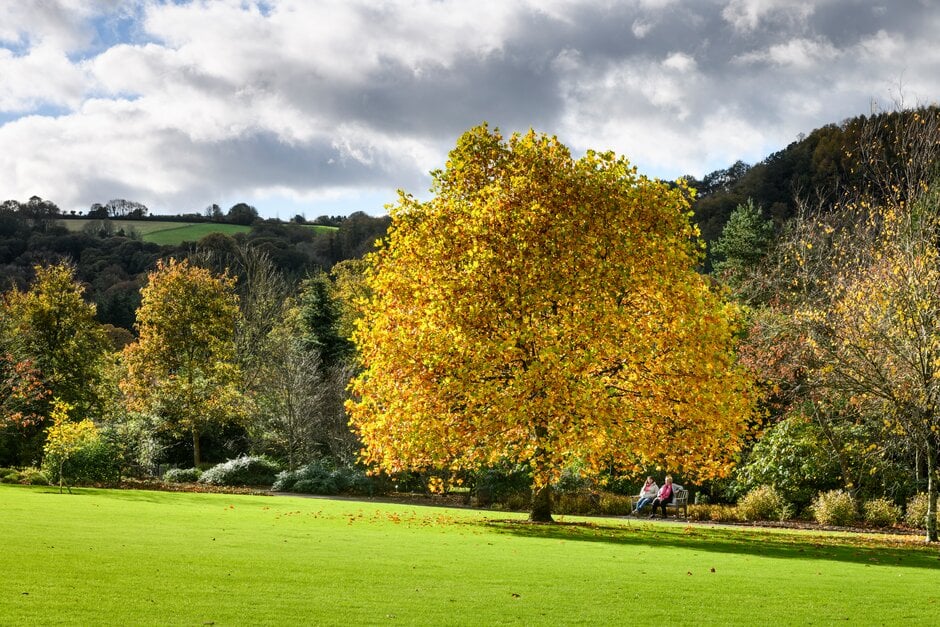Liriodendron tulipifera
tulip tree
A vigorous large deciduous tree with distinctively shaped leaves turning butter-yellow in autumn. Flowers 4cm in length, tulip-shaped, yellowish-green, marked with orange within
Other common names
Canary whitewoodcanoewood
see morelyre tree
North American whitewood
saddle tree
tulip poplar
western poplar
whitewood
yellow poplar
Size
Ultimate height
Higher than 12 metresTime to ultimate height
20–50 yearsUltimate spread
Wider than 8 metresGrowing conditions
Moisture
Moist but well–drained, Well–drainedpH
Acid, NeutralColour & scent
| Stem | Flower | Foliage | Fruit | |
| Spring | Green | |||
|---|---|---|---|---|
| Summer | Green Orange Yellow | Green | ||
| Autumn | Yellow | Green | ||
| Winter |
Position
- Full sun
- Partial shade
Aspect
West–facing or East–facing or South–facing or North–facing
Exposure
Exposed or Sheltered Hardiness
H6Botanical details
- Family
- Magnoliaceae
- Native to GB / Ireland
- No
- Foliage
- Deciduous
- Habit
- Spreading branched
- Genus
Liriodendron are vigorous deciduous trees with attractively lobed leaves and green and orange, tulip-shaped flowers in summer; good autumn colour
- Name status
Correct
- Plant range
- Eastern N America
How to grow
Cultivation
Grow as specimen tree in lime-free soil in sun or partial shade
Propagation
Propagate by seed or grafting
Suggested planting locations and garden types
- Architectural
- Low Maintenance
Pruning
Pests
Generally pest-free
Diseases
May be susceptible to honey fungus
Love gardening
Sign up to receive regular gardening tips, inspiration, offers and more
View our Privacy Policy
Get involved
The Royal Horticultural Society is the UK’s leading gardening charity. We aim to enrich everyone’s life through plants, and make the UK a greener and more beautiful place.
